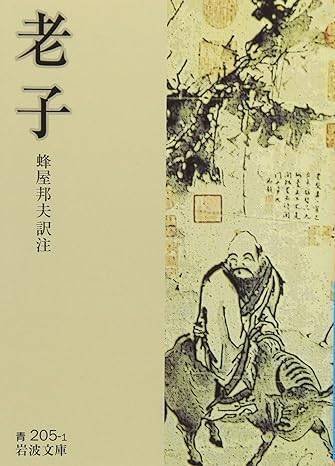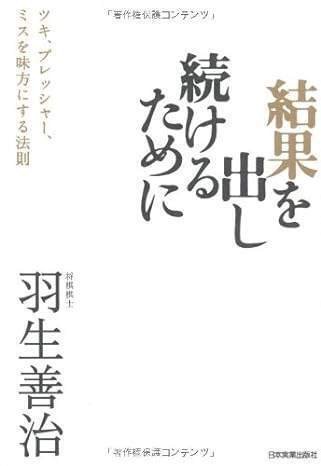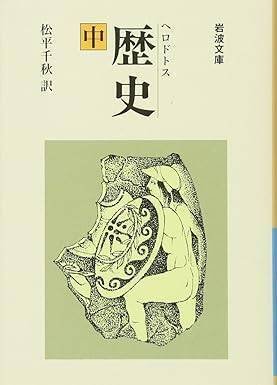
【大晦日カウントダウン記事(8:00)】【Random notes】Instantaneous English Composition Training(Diary and Translation edition@2023/12/31)
朱門さん撮影
『徒然草』「つれづれなるままに、日暮らし硯に向かひて心にうつりゆく由(よし)なしごとを、そこはかとなく書き付くれば、あやしうこそもの狂ほしけれ。」の文意は、「暇を持て余して退屈しのぎに、一日中思い浮かんでくる他愛もないことをとりとめもなく書いていると何となく…」ということなのですが、最後の「もの狂ほしけれ」についての現代語訳は定まっていません。
【参考図書①】
「徒然草を読む」(岩波新書)永積安明(著)

「狂ったような」とか「馬鹿馬鹿しいような」という意味なのですが、「とりとめもなく書いた馬鹿馬鹿しいもの」という謙遜か、「書いているうちにおかしくなってきた」という気持ちが高ぶった状況なのか、真意は、不定なんだとか。
いずれにしても読み手の心をつかむ一文ではありますね。
今回は、そんな暇を持て余して書いた!?と思われる感じで英作文してみました(^^)
Paragraph 1:Wind style is to enjoy the fluctuation of the mind.
In the business world, the term "value creation" is used a lot.
But I sometimes wonder what value is in the first place.
"Today, people know the price of everything, but they do not know the value of anything."(Oscar Fingal O'Flahertie Wills Wilde)
It seems to me that we can never know the intrinsic value of anything.
We think so because value is ever-changing and elusive.
I believe that the word "value" is a perfect fit for the sense of emptiness.
The root of the word "うつろい" is "うつ".
In Chinese characters, it can be expressed as "empty" or "void.
It can be said that change occurs when we put some feelings into something that is empty.
「虚空よく物を容る。我らが心に念々のほしきままに来たり浮かぶも、心という物なきにやあらん。」(徒然草235段)
【参考図書②】
「徒然草」(角川ソフィア文庫―ビギナーズ・クラシックス)角川書店(編)

Is it because the mind has no substance that various thoughts come and go as they please?
Kenko-hoshi lamented the changeability of our minds, likening it to the void.
Because the mind, which should determine value, vacillates, there is no such thing as absolute value.
But our hearts fluctuate because they reflect the facets of beauty, such as love and the four seasons.
In the past, Japanese people accepted them generously and composed waka poems about them.
「やまとうたは、人の心を種として、よろづの言の葉とぞなれりける。世の中にある人、ことわざしげきものなれば、心に思ふことを、見るもの聞くものにつけて言ひだせるなり。花に鳴くうぐひす、水に住むかはづの声を聞けば、生きとし生けるもの、いづれか歌をよまざりける。」(古今和歌集・仮名序)
【参考図書③】
「古今和歌集」(角川ソフィア文庫―ビギナーズ・クラシックス)中島輝賢(編)

In other words, I was enjoying the fluctuation of my mind.
We are letting ourselves be carried along by the wind.
That is what it means to live in the wind.
It seems to me that the ancients had a better grasp of the essence of things.
If essential value exists somewhere, then if we live playfully and elegantly, we may be able to see something.
Paragraph 2:Like supple water.
In weakness lies the source of strength.
I think it was Lao Tzu who first pointed out this mysterious inversion.
The root of Lao Tzu, as I see it, is "Rule the country with suppleness like water!" .
It can be read as a life lesson to live flexibly.
上善若水。
水善利萬物而不爭、處衆人之所惡。
故幾於道。
「上善は水の若し。水は善く万物を利して而も争わず、衆人の悪む所に処る。故に道に幾し。」
(The highest good is like water. Water, while blessing all things, does not fight with all things, but naturally gathers in a low place. Its existence is similar to that of the Way.)
上善は水のごとし
Here he preaches that water is the best way to be, and he goes a little further and praises the way water is.
天下莫柔弱於水。
而攻堅強者、莫之能勝。
以其無以易之。
弱之勝強、柔之勝剛、天下莫不知、莫能行。
「天下に水より柔弱なるは莫し。而も堅強を攻むる者、これに能く勝る莫し。その以ってこれを易うるもの無きを以ってなり。弱の強に勝ち、柔の剛に勝つは、天下知らざる莫きも、能く行なう莫し。」
(There is nothing in the world softer and weaker than water, yet nothing is superior to water in defeating that which is hard and strong. This is because there is nothing that can change its nature. It is well known that the weak can defeat the strong, and that the meek can conquer the strong, but it is difficult to do so.)
He tells us that there is nothing softer and weaker than water in this world, but that weakness triumphs over strength and softness over firmness.
Lao Tzu, who sought his ideal in water, begins by saying, "I have three treasures," and sublimates the softness and weakness of water into a concrete teaching.
天下皆謂我大似不肖。夫唯大、故似不肖。
若肖、久矣其細也夫。我有三寳、持而保之。
一曰慈、二曰儉、三曰不敢爲天下先。
慈故能勇、儉故能廣、不敢爲天下先、故能成器長。
「若し肖ならば、久しいかなその細なるや。我れに三宝有り、持してこれを保つ。一に曰く慈、二に曰く倹、三に曰く敢えて天下の先と為らず。慈なるが故に能く勇、倹なるが故に能く広く、敢えて天下の先と為らざるが故に能く器の長を成す。」
(If I had been like other people, I would have become insignificant long ago. I have three treasures, which I have always carefully guarded. The first is charity, the second is living frugally, and the third is not trying to be ahead of others. If you have a compassionate heart, you can be brave for the sake of others. If you live frugally, you will have a spacious mind and a rich heart.)
Of course, the passage originally taught how to govern a country, but there is a great translation from an unknown source when taken as a life lesson, which I will introduce below.
Be gentle, and you will be brave.
Be modest, and you will have a broad mind.
Do not go in front of others, and you will become a leader.
【参考図書④】
「老子」(岩波文庫)老子(著)蜂屋邦夫(訳)

Paragraph 3:Life is not something you build, but something that flows.
I believe that life is not something you build, but something that flows.
It is all about how we make the most of the opportunities we happen upon in this ever-changing world.
In the Hojo Ki, it is said as follows.
「行く川のながれは絶えずして、しかも本の水にあらず。よどみに浮ぶうたかたは、かつ消えかつ結びて久しくとどまることなし。世の中にある人とすみかと、またかくの如し…」
【参考図書⑤】
「方丈記」(ちくま学芸文庫)鴨長明(著)浅見和彦(翻)

It is an illusion that the past leads to the present and the present to the future.
First of all, it leads to the unraveling of the head and heart, which are easily entrenched in the world of logic and direct proportion.
Then, I would like to live a flexible life like the water that Lao Tzu talked about.
Because happiness is to keep searching for rewarding things in the flow.
By the way, Yoshiharu Habu said the following in his book, "結果を出し続けるために" (p.195).
【参考図書⑥】
「結果を出し続けるために(ツキ、プレッシャー、ミスを味方にする法則)」羽生善治(著)

"Happiness is not something that stays in one place and says, "I am happy now. It is something that continues to change and discover new things as it continues to change. It is a process of continually finding and searching for what is rewarding and fulfilling."
Also, the boundary between happiness and unhappiness is as difficult to know as the boundary between right and wrong.
If I seem to be happy now, I try to think about what kind of events have greatly benefited me.
It is very difficult to live freely.
Fortune and happiness.
Fortune means to be lucky.
Happiness is a full heart.
As long as we are alive, we feel happiness or unhappiness every day by the power of chance and luck, and our feelings change from moment to moment.
Even if you are happy now, you never know what tomorrow will bring.
Again, the fact that you say "until death" here means that if it is after death, then you can say you are a happy person.
If that is the case, if there is a difference between luck and happiness, it is the difference between process and result.
We don't say "lucky" to a dead person.
Even if we did, we would say, "He was lucky," in the past tense.
In other words, the middle of the road is good luck, and the end point is happiness.
Even those who are in a fortunate situation now are not ready to draw conclusions yet.
After all, they are still in the middle of the road.
After that, there is a possibility that something unfortunate will happen.
Conversely, those who are in an unfortunate situation are also not ready to draw conclusions yet.
After all, they are still in the middle of the road.
After that, happy things may happen.
”Until death, we may call a man fortunate, but we must refrain from calling him happy." (Herodotus, History, vol. 1, p. 35)
【参考図書⑦】
「歴史 上」(岩波文庫)ヘロドトス(著)松平千秋(訳)

「歴史 中」(岩波文庫)ヘロドトス(著)松平千秋(訳)

「歴史 下」(岩波文庫)ヘロドトス(著)松平千秋(訳)

Paragraph 4:Life is about finding stars and weaving constellations.
These words appear in the essay "Picking up the Stars" by Seisensui Ogiwara.
"Life is about finding jewels in the dust."
The author, a haiku poet, suddenly remembered these words while editing a collection of self-selected haiku.
He then compares the gems to the stars in the night sky and continues to edit them as if he were finding constellations and nebulae there.
"I am not daring to try to pick up a large number of them. I want to pick up the really big stars, the really beautiful stars, and exercise them as a star system in a single stratocumulus."
Finding what shines in one's life and weaving it into the past, present, and future.
I remember Steve Jobs once described it as "Connecting the Dots".
Whether or not we can find stars and constellations in our memories can make a big difference in our sense of happiness.
So maybe we can think of memory as having a mind of its own.
But our human being is made up of about 60 trillion cells, several hundred billion of which are replaced in a day.
How can we retain our memories when, at the cellular level, we become a different person in six months?
Biologist Shinichi Fukuoka pointed out that it may be the action of neural circuits.
In other words, the stars in the night sky are the cells, and the constellations are the neural circuits.
The idea is that even if the stars that make up a constellation are replaced, the shape of the constellation remains and memory resides within that shape.
Are we creatures that continue to search for stars and find constellations without being aware of it?
What is life?
If I were to answer, "Life is to find the stars and to create constellations," it would be a romantic yet essential answer, I feel.
【参考記事】
【参考図書⑧】
「一茶随想」(講談社文芸文庫)荻原井泉水(著)

Paragraph 5:Love is trust in chance.
A Century of Love," a philosophy book by Alain Badiou, is a book I came across through the "Love and Chance" connection by Shuzo Kuki.
【参考文献】
【参考記事】
It is indeed French to talk about the world with love even after 70 years of age.
We are used to thinking in such a way that we order and perceive the world in an identity-based organizational system with definitions.
But if we let it go too far, if it becomes too rigid, we lose surprise and inspiration, and our lives become boring.
Isn't it love that releases the shackles of the mind from such logical thinking?
"Love, taken as itself, is almost nothing. It begins with a single encounter. We learn that we can explore the world not merely by sameness but by difference."
"Love is truly a trust placed in chance, if not quite pre-calculated as a profitable investment, not conceived as an exchange of mutual interests. Love moves us into the realm of our fundamental experience of what difference is, and the idea that one can, after all, explore the world in terms of difference."
The development of the story is similar to that of Kuki, who taught about chance through love.
It is said that the exploration of the world begins with the surprise of coincidence, and that love is the first step in this exploration.
Japanese classics seem to be, roughly speaking, all about love, but what do you think?
Even in Tsurezuregusa, there are subtle hints of love, aren't there?
I think we should throw away the idea that there are no classics in Japan that teach proper philosophy and thought.
"Love is something that transcends all solitude and concerns everything in the world that seeks to give life and vitality to survival. I know it. The world is immediately the source of the happiness that being with others gives me. The words "I love you" could mean that the world is the source of my happiness, which is you."
What a beautiful conclusion to Batiu's story.
【参考図書⑨】
「愛の世紀」アラン バディウ/ニコラ トリュオング(著)市川崇(訳)

【関連記事】
【Random notes】Instantaneous English Composition Training(Diary Edition@2023/12/21)
https://note.com/bax36410/n/na300148fa075
【Random notes】Instantaneous English Composition Training(Business Skills edition@2023/12/22)
https://note.com/bax36410/n/n98d9866425fe
【Random notes】Instantaneous English Composition Training(Book report edition@2023/12/23)
https://note.com/bax36410/n/n7ba9fcf73cf7
【Random notes】Instantaneous English Composition Training(Book report and Translation edition@2023/12/24)
https://note.com/bax36410/n/n1129bcac9b0e
【Random notes】Instantaneous English Composition Training(Diary and Translation edition@2023/12/25)
https://note.com/bax36410/n/n366840f35f42
【Random notes】Instantaneous English Composition Training(Diary Edition@2023/12/26)
https://note.com/bax36410/n/nedd3dc8bf4e0
【Random notes】Instantaneous English Composition Training(Diary Edition@2023/12/27)
https://note.com/bax36410/n/n13142d2060b5
【Random notes】Instantaneous English Composition Training(Book report edition@2023/12/28)
https://note.com/bax36410/n/n25b766b7c7ac
【Random notes】Instantaneous English Composition Training(Diary Edition@2023/12/29)
https://note.com/bax36410/n/n5547f7c94895
【Random notes】Instantaneous English Composition Training(Diary and Translation edition@2023/12/30)
https://note.com/bax36410/n/nb1973f862804
この記事が気に入ったらサポートをしてみませんか?
